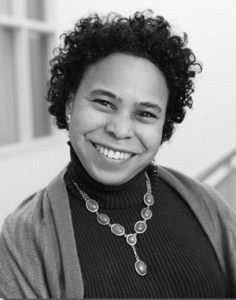Surrency prize to McKinley, “Fractional Freedoms”.
November 15, 2011
University of Oregon law professor Michelle McKinley was named this year’s winner of the Surrency prize, awarded by the American Society for Legal History (ASLH) for the best article published in the Society’s journal, the Law and History Review. McKinley’s winning article is titled “Fractional Freedoms: Slavery, Legal Activism, and Ecclesiastical Courts in Colonial Lima, 1593-1689.” The article appeared in Volume 28, no. 3. McKinley is a faculty affiliate of the UO Center for the Study of Women in Society and an active member of the CSWS collaborative research interest group project Service and Servitude.
The official citation reads:
“Michelle McKinley’s ‘Fractional Freedoms: Slavery, Legal Activism, and Ecclesiastical Courts in Colonial Lima, 1593-1689’ insightfully advances our understanding of how the role of the Catholic Church in the law and legal institutions of colonial Latin America affected the experience of slavery there in ways that made it differ significantly from North American slavery. Drawing from ecclesiastical court records demonstrating the ability of slaves in Spanish Peru to sue for marriage and divorce, protect their families’ integrity, enforce promises of manumission, and compel transfers of ownership to less abusive masters, McKinley gives us indelible examples of enslaved women acting as autonomous agents shaping, within the confines of their bondage, their lives and destinies. Engaging long-standing debates between scholars with a variety of perspectives on the role of law and legal agency in the institution of slavery, McKinley forcefully asserts that law matters, that legal traditions and religious institutions can ameliorate social relations grounded in unbridled power and material interests.
“‘Fractional Freedoms’ is also thoroughly sourced in archival records from Peru and in secondary literature, in multiple languages, from three continents. The Surrency Committee was impressed by McKinley’s mastery of this transnational array of material covering many legal subjects, as well as the eloquence with which she drew from it to reconstruct daily life, intimate relations, and societal norms in seventeenth-century Peru. ‘Fractional Freedoms’ is commended as a work of social, cultural, and legal history that is sure to inform the way scholars think and write about slavery in the Americas.”


